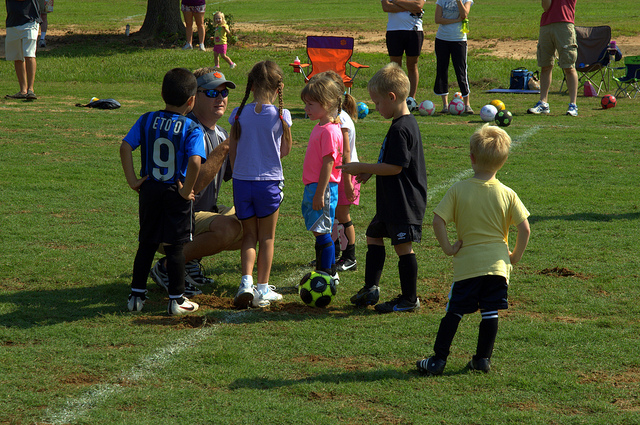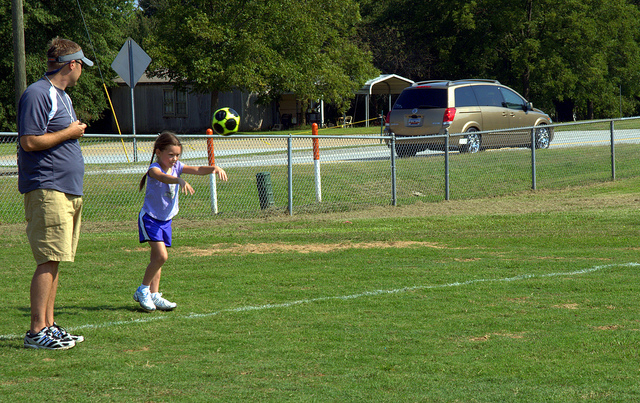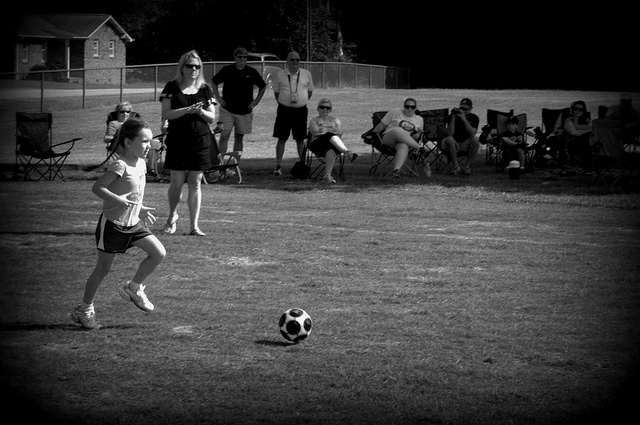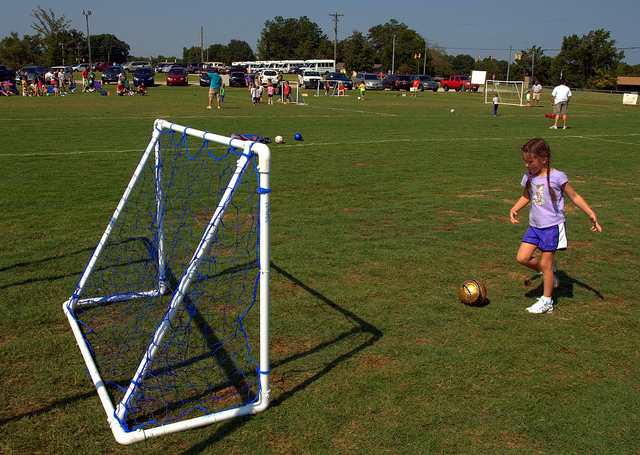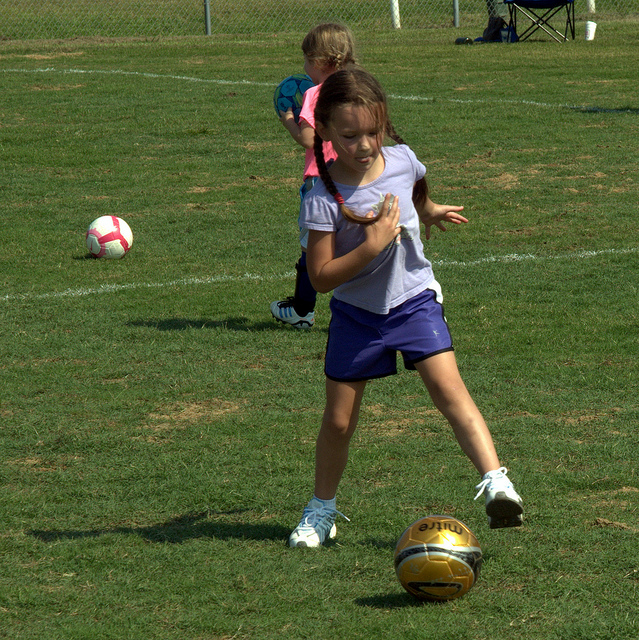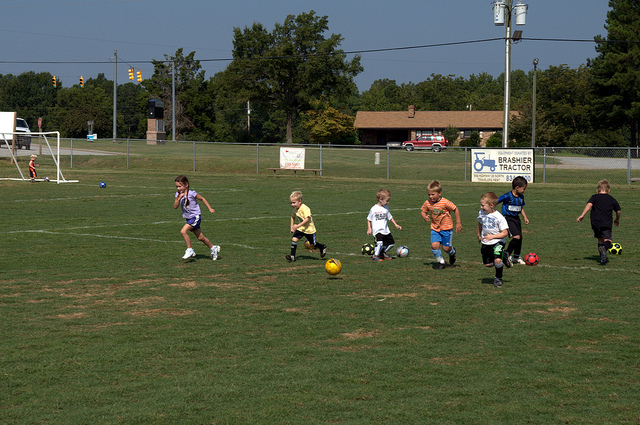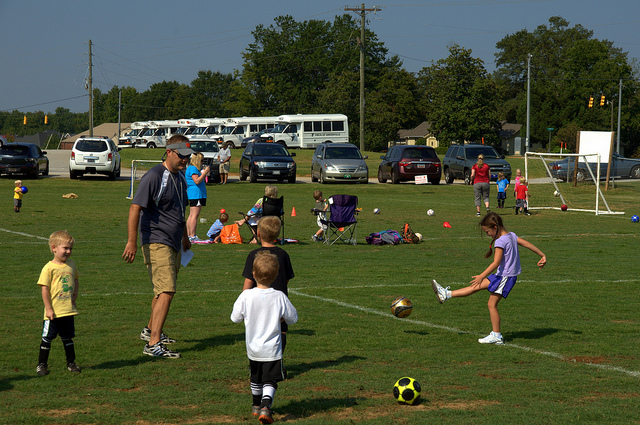It’s perhaps a cliche of parenting, the desire to give more to your children than you had as a child. Unfortunately, it seems our culture equates that “more” materialistically more often than not, but the question of experience seems more important. And to that end, we have to step out of our usual circle and involve others — for instance, ten others, to make a soccer team.
Providing the Girl with the opportunity to kick a ball back and forth is easy enough: we’ve done it in the backyard a time or two. Attention spans, though, tend to be short in such activities. There’s always a cat to chase, a trampoline to pull out of the basement, or something else — squirrel! Somehow, though, things change when kicking the ball in a controlled environment with virtual strangers. Perhaps it’s a desire to create a positive impression; maybe it’s the drive to conform and kick along with the others. Whatever the case, the Girl’s first experience with soccer provided her first and foremost with a concentrated dose of semi-organized sport.
Still, kicking and even throwing a soccer ball, even in concentrated doses, only provides so much, and it’s all physical.
There’s more to sport than the physical. In fact, the physical, at a certain level of competition, is only incidental. World-class athletes have practiced so much that the maneuvering and contorting involved in a given sport is almost a matter of muscle memory. Watch a gymnast doing a routine on the pommel horse and it’s hard to imagine he’s thinking through every single move, every single flex of the muscle. By that time, the game is mental. He knows he can do his routine perfectly: he’s done it flawlessly in practice countless times. It’s now a question of doing it when there’s something — everything — at stake. It’s now a question of confidence and mental strength.
A gymnast can’t really take his pommel horse skills into the business world and do much with them. He can, however, take his self-confidence and his ability to perform well under stress into non-sporting life and achieve just about anything he wants. So it’s not so much the physical I’m worried about as I watch the Girl run about the soccer field.
I’m grateful, of course, for the improvement in coordination and strength such an activity brings, but more important is the mental development.
I’m more pleased when she calmly chases down a ball that’s gotten out of her control, maintaining her cool the whole time, than I am when it becomes clear that she’s one of the fastest kids on the field.
I’m more pleased when I see her calmly go get a ball that a teammate has kicked away from her out of childish spite
than I am when I see a good, strong kick.
But I’d be lying to deny that the kick makes me feel good, too.
